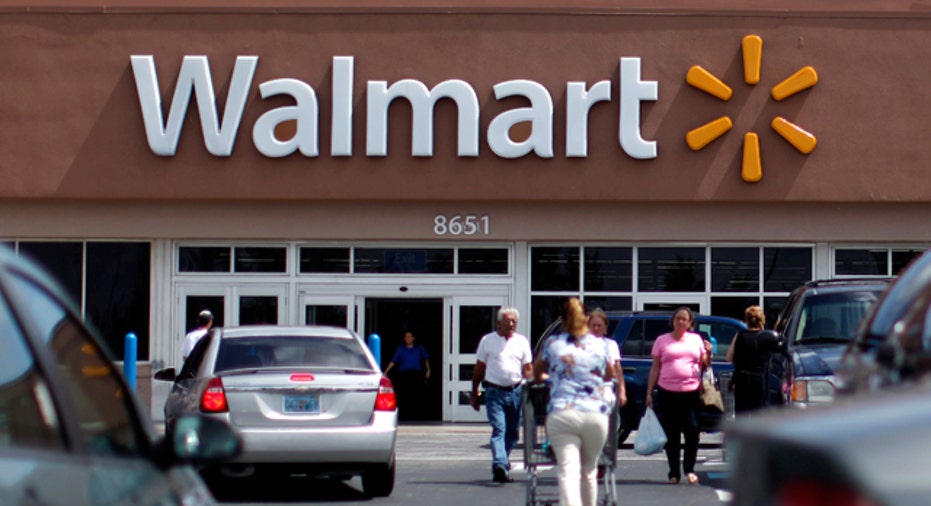CEOs Say Yes to Removing Tax Breaks

The CEO of Wal-Mart Stores Inc. and other major U.S. employers told Congress Wednesday they would be willing to give up tax breaks that benefit their companies in return for a steep drop in the country's 35 percent corporate tax rate.
Companies, including big companies, pay a much lower overall effective rate by exploiting tax breaks, usually in perfectly legal ways, that in 2011 are costing the government about $102 billion in lost revenue.
``We do believe comprehensive reform means willingness to put everything on the table,'' Wal-Mart CEO Mike Duke told the Senate Finance Committee. Without lower corporate tax rates, Duke and the other panelists said, U.S. companies are at a competitive disadvantage both at home and abroad.
Now, amid increasingly frantic debt ceiling negotiations, President Barack Obama and lawmakers are talking about agreeing to tackle tax reform in 2012, but analysts are skeptical that this could be before elections in November 2012.
Though the hearing was billed as focusing on how the tax code affects hiring, businesses and economic growth, there were no specific numbers on how many jobs a lower tax rate would help to create.
Also missing: any concrete discussion of how a tax break on multinational repatriation of foreign profits -- favored by business -- could be structured to ensure that money is later invested in more U.S. jobs. A prior tax holiday was later proven to have created few, if any, new jobs.
The discussion focused instead on what the tax rate should be and what companies might give up to get there.
AGREEMENT
All four CEOS agreed the rate should come down, though how far was the topic of some disagreement as was the question of which incentives -- assailed by critics as breaks or loopholes -- might be removed from the tax code.
Wal-Mart's Duke suggested a 25 percent rate would be a good figure, but Gregory Lang, CEO of semiconductor manufacturer PMC-Sierra Inc, said to compete with his Asian rivals the rate would have to be far lower -- 15 percent to 17 percent. Lang also stopped short of saying he would be willing to give up the research and development tax credit.
Last year, the number of jobs at PMC-Sierra grew by 20 percent but only 15 percent of the new positions were in the United States. A third were added in Canada, where he emphasized that the research credit is quite generous. PMC-Sierra's tax rate is significantly below the statutory rate due to income earned overseas in lower taxed regions and other tax shields. Last year the company paid 27 percent.
Many companies that have most effectively lowered their taxes and benefit the most from the current system, including General Electric Co and Exxon Mobil Corp, were not on the panel. Kimberly-Clark's rate is over 30 percent.
Duke testified that Wal-Mart, as the country's largest private employer, paid $4.7 billion in corporate taxes in 2010, 3 percent of all corporate income taxes collected by the U.S. Treasury, an effective tax rate of 32.2 percent. ``Many companies that testify before you theoretically face similar tax rates; we actually pay them,'' he said.
CHAMBER OF COMMERCE SUPPORT
CVS Caremark paid the full 35 percent last year, said CEO Larry Merlo, because the company operates only in the United States and is in an industry with no significant tax breaks. He sees a lowering of the rate as a way for CVS to better compete with companies from outside the United States expanding their U.S. presence including Dutch grocer Ahold .
The group's overall position was largely in step with what the U.S. Chamber of Commerce has promoted since March, including the lower overall tax rate and elimination of tax breaks that benefit one industry over another.
Tom Falk, CEO of diaper maker Kimberly-Clark Corp, urged action. ``Our nation is facing a crisis, and in a crisis you can drive a lot of change. I would urge you to be bold,'' Falk said, ``and get some things done that couldn't be done in ordinary time.''
Falk said he would readily give up the manufacturing and research and development credits, and others his company uses, in exchange for a 22 percent or 23 percent federal tax rate.
Agreement on a corporate tax overhaul seemed unanimous, with Senator Orrin Hatch, the top Republican on the committee, calling the current tax system ``antiquated.'' The hearing, however, provided few details on how that will get done.



















